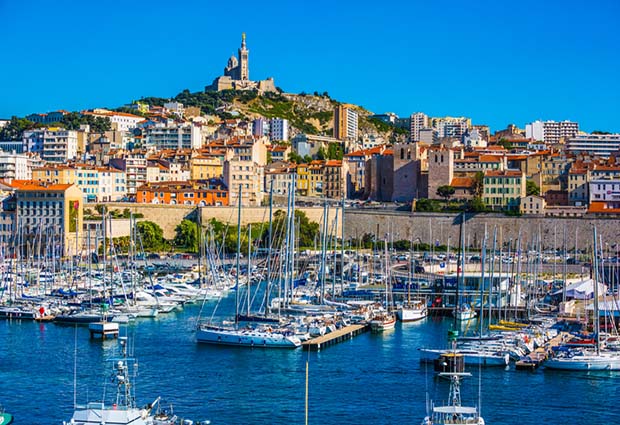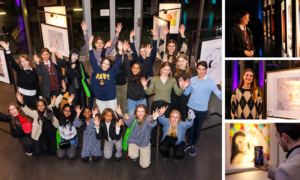
EMBL and Tara: Marseille
In its latest port of call, Tara brings Mission Microplastics to Marseille

The scientific crew aboard the Tara research vessel are continuing their mission to explore the origins of microplastic waste and its transfer from river to sea. For the past few months, they have been collecting samples from some of Europe’s major rivers, in a voyage that has taken them around the coastlines of the UK, Germany, Spain, Portugal, France and Italy.
Along the way, Tara has stopped off in various ports for public outreach activities. Members of the public are invited on board to get a unique insight into scientific research in action, and to learn about Tara’s mission. EMBL scientists and staff are also joining some of the stopovers, to bring the latest in life science research and technology development at EMBL to a wider audience.
Next stop, Marseille.
EMBL in France
From 27–30 September, Tara will be docked in the port of France’s second largest city, close to the mouth of the Rhône. The same weekend, EMBL alumni and friends from France and beyond will converge on Marseille to attend the EMBL in France event. “This was a deliberate decision to have the alumni event coincide with the Tara stopover,” says Eva Kowalinski, a group leader at EMBL Grenoble. “The EMBL in France event takes place on the Monday, but participants are invited to spend the weekend in Marseille, and visit Tara on Saturday afternoon.”
Another of the event’s organisers, EMBL alumnus Juan Reguera adds: “Stephen Cusack, the Head of EMBL Grenoble, asked if I would be willing to help organise the event, and I saw the opportunity to bring together EMBL alumni working in diverse subject areas in this very nice set-up. You also have this interesting cultural aspect: the sea, the city, and Tara.”
Unfolding the story of life
Researchers at EMBL are driven by curiosity to learn about life at all scales, from molecules to ecosystems. What better place to look for insights into the interconnectedness of humans and our environment than in the largest cohesive ecosystem on Earth – the oceans?
The original Tara Oceans expedition was the brainchild of EMBL scientist Eric Karsenti, and more than 35 000 samples have been collected to date. The unprecedented quantity of data gathered – made available to researchers via databases held at EMBL’s European Bioinformatics Institute (EMBL-EBI) – has offered up some extraordinary discoveries, including half a million new microorganisms and an unexpected diversity in plankton genomes.
Approaching a problem from different angles
Mission Microplastics may shed light on the many threats posed by microplastic pollution in the oceans. One of these will be of particular interest to EMBL scientists: these tiny fragments of plastic are implicated in the spread of infectious diseases around the world. They are vehicles by which pathogens spread easily far and wide, riding the ocean currents.
At EMBL Grenoble, scientists are conducting world-class research in the field of structural biology, using techniques including neutron protein crystallography, X-ray crystallography and cryo-electron microscopy. One of the research topics on which they are bringing their expertise to bear is the structural biology of viruses. The Cusack group, for example, is studying how the influenza virus replicates and spreads.
Researchers from EMBL Grenoble will join scientists from leading French research institutes for the EMBL in France event in Marseille and a tour on board Tara. It will be an opportunity to forge new links and strengthen existing networks, in the collaborative spirit that defines both the Tara Ocean Foundation and EMBL.


